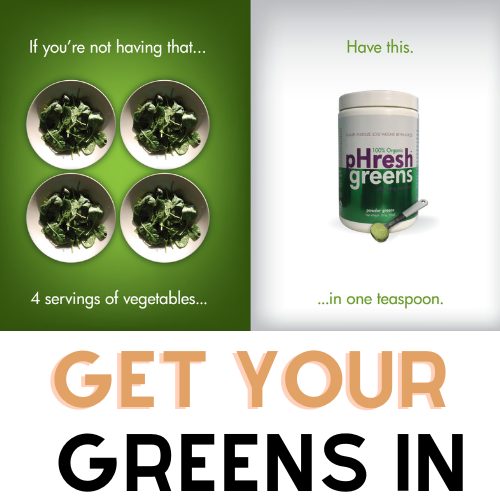Recently we penned a lengthy blog about the Imperial College London study which laid bare the multitude of benefits linked with eating 10 portions of fruit and veg per day. Such is the nature of these things, a newer study has now appeared that further sets the 10-a-day guideline in stone. Because it turns out that eating more vegetables could hold the key to reducing your stress levels, too.
Jogging Memories About 10-a-Day
If you’ve a spare few minutes – we thought we’d remind you of the benefits associated with eating 10, rather than 5, portions of fruit and veg a day.
After pooling results from 95 different studies involving approximately two million people, the School of Public Health at Imperial College confirmed that eating 10-a-day was associated with: a 33% reduced risk of stroke, a 31% reduction in premature death, a 24% reduced risk of heart disease and a 28% reduced risk of cardiovascular disease.
What’s more, eating 10 portions reduced the likelihood of total cancer by a whopping 13%.
Fresh vegetables were deemed to have the most protective effects, followed by salad and then fruit.
Reducing Stress with Diet
The long and short of the new study is that every extra vegetable you add to your plate lowers your overall stress levels by 5%.
The study, which was conducted by the University of Sydney, analysed data from 60,000 Aussies who were aged 45 or over.
Focusing on participants’ dietary habits, in particular their consumption of vegetables, scientists learned that men who ate between three and four daily servings of vegetables had a 12% lower risk of stress than those who only ate a single serving (or less). Women showed an 18% reduced risk.
Eating five to seven portions, meanwhile, was associated with a 14% lower risk in men and an incredible 23% in women.
Perhaps those bright-eyed Instagrammers who post daily pics of their vibrant green smoothies, and who talk endlessly about how happy and healthy it makes them feel, are on to something after all.
How was stress measured, you might wonder. Well, researchers relied upon the Kessler Psychological Distress Scale, a widely-used 10-item questionnaire that assesses psychological distress and symptoms of depression and anxiety.
Interestingly, fruit intake was not shown to have any effect on people’s psychological stress levels; the benefits appeared to stem directly from vegetables.
Notable stress-reducing foods include dark leafy greens, which can help to ramp up the production of mood stabilisers in the brain, not least dopamine and serotonin. Green tea, turmeric and avocado are all known to increase dopamine.
Of course, this isn’t the first study which posits healthy eating as a novel way of fighting depression. A previous trial published in the British Journal of Psychiatry found that those who ate whole foods (top-loaded with vegetables, fruits and fish) had lower odds of depression than those whose diet was composed largely of processed food.
That would, of course, stand to reason: far from increasing dopamine or serotonin, a great many processed foods influence our brain chemistry in a negative way, inducing a ‘mood crash’ and even affecting our sleeping patterns.
The worst culprits include carbonated beverages, bagels (which spike our blood sugar), salted peanuts and baked treats like cakes and muffins, which are loaded with refined sugars and saturated oils.
Given the myriad benefits associated with eating more greens, why wouldn’t you want to consume a little more asparagus, spinach, kale or broccoli? Or take a leaf – no pun intended – out of the books of those ever-so-smug Instagrammers with their green juices and smoothies?
Green Spaces and Green Smoothies
It’s funny how green seems to be the primary colour of the world. Our grass is green, so is our currency; and while green vegetables are some of the healthiest foods known to man, green open space has also been linked with stress reduction in economically-deprived areas.
The positive correlation between cortisol slope and the percentage of green space one is exposed to indicates that we could all do with getting away from the city once in a while.
Hippocrates’ famous quote ‘Let food be thy medicine and medicine be thy food’ is as relevant now as when the great physician first uttered the words. The latest studies only serve to bear this out.
Whether you’re aiming to eat more vegetables for their stress-busting properties, or for their protective effects against a number of conditions, you could make the 10-a-day target easier to achieve by using a high-quality greens supplement such as pHresh Greens. Classed as a ‘raw food supplement’, it is composed of 100% organic and natural ingredients including green vegetables, algae, cereal grasses and grass juice powders.
A single scoop of pHresh delivers nutrition equal to 3-4 servings of raw vegetables and it is packed with B vitamins, carotenoids, antioxidants and dietary fibre. The supplement also contains green superfoods like spirulina and chlorella; all you need to do is blend with water. You can throw a scoop into a smoothie with fresh juice (not from concentrate!) or chunks of fruit too.
Conclusion
Are vegetables a panacea to elevated stress levels? No, probably not. If you are under the cosh at work or your personal life is in tatters, it would be an exaggeration to state that guzzling a few green smoothies will sort you out.
That said, the evidence very much highlights the role diet can play. Just as eating nutrient-starved food negatively influences our brain chemistry, wholesome, nutritious food can have a positive effect.
Make sure to eat plenty of vegetables every day, including plenty of raw varieties: eating produce in its natural form is even better for boosting mood and reducing depressive symptoms.
Water for Health Ltd began trading in 2007 with the goal of positively affecting the lives of many. We still retain that mission because we believe that proper hydration and nutrition can make a massive difference to people’s health and quality of life. Click here to find out more.




























Leave a comment